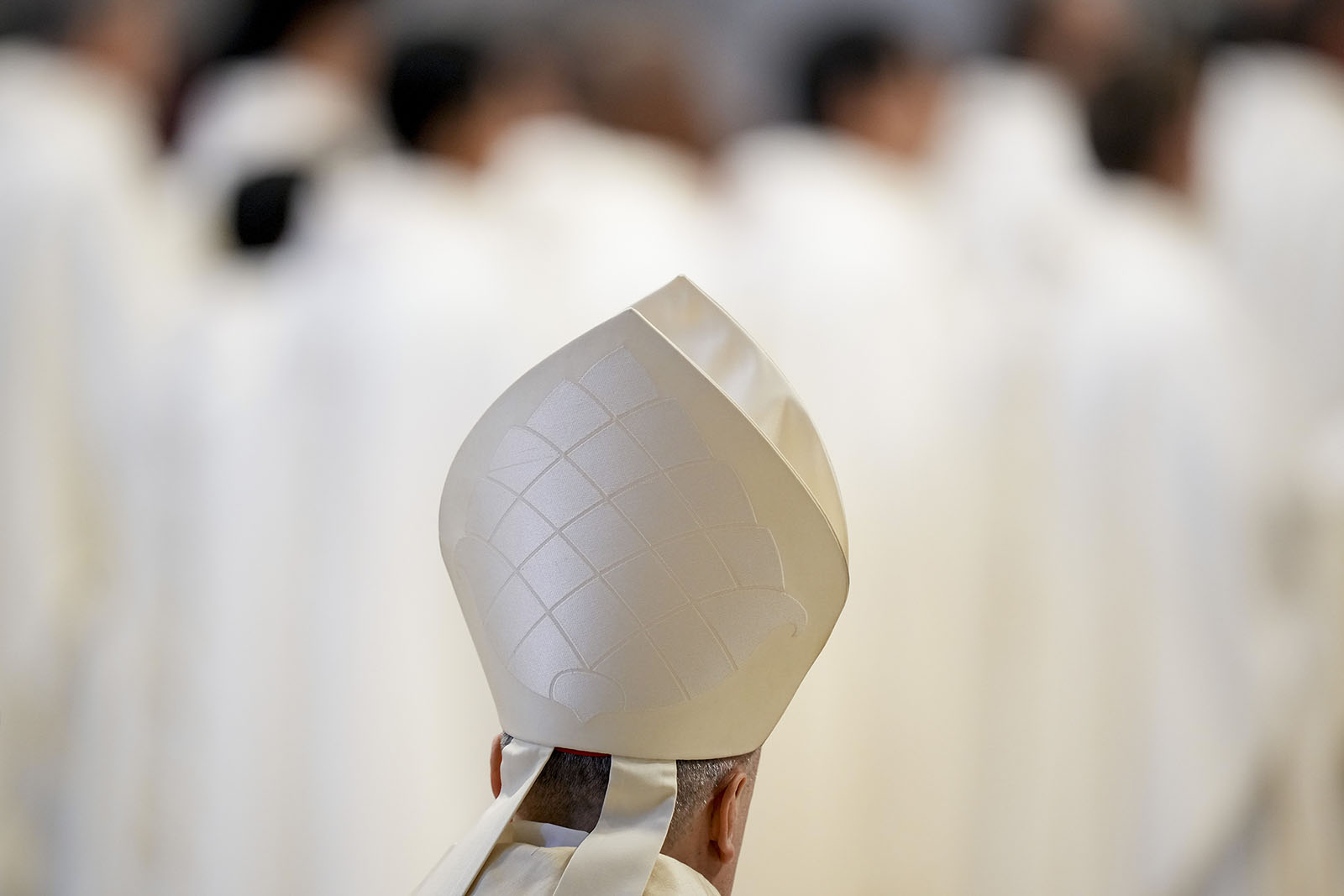
VATICAN CITY (RNS) — In a note released Monday (Nov. 25), Pope Francis reinforced that the final report issued by delegates to the recently ended Synod on Synodality constitutes church teaching.
“Acknowledging the value of the synodal journey that we have made,” the pontiff wrote, “I now hand over the instructions contained in the Final Document to the entire Church, as a restitution of everything that has matured over these years through listening and discernment, and as an authoritative indication for its life and mission.”
“The Final Document participates in the ordinary Magisterium of the Successor of Peter and thus I ask that it be accepted as such,” he added, using the church’s term for its teaching authority.
The synod was a three-year consultation with Catholics from the parish level to continental assemblies of bishops, and twice brought together bishops and a diverse group of other church leaders in Rome, including male and female religious and lay Catholics, once in October 2023 and again this past October. Working from ideas submitted by Catholic churchgoers, clergy and institutions around the world, the group was asked to discern “a new way of being church,” focused on inclusivity, transparency and welcoming.
Participants in the summit voted on a final document on Oct. 26, and Francis quickly ratified it. It contained a series of suggestions aimed at promoting a more horizontal structure for church leaders, more accountability for bishops and increased lay involvement, which Francis’ note makes clear is official church doctrine.
“The final document is official, magisterial teaching, and so no one can say that following the synodal path is optional,” said Brian Flanagan, an ecclesiologist and senior fellow at the Catholic LGBTQ outreach organization New Ways Ministry, commenting Tuesday on the pope’s note. Flanagan said that local churches are given freedom to implement the synod within their “different ecclesial, cultural, and local contexts.”

Participants attend a session of the 16th General Assembly of the Synod of Bishops at the Paul VI Hall at the Vatican, Oct. 7, 2024. (AP Photo/Andrew Medichini)
But controversial issues raised by many Catholics during the synodal process, particularly the role of women and LGBTQ Catholics, were relegated to 10 study groups formed by theologians, canon lawyers and experts, charged with submitting their findings in 2025. Many, particularly those hoping that the synod would open the diaconate, a form of holy orders, to women were disappointed that the synod did not go further toward approving some reforms.
Commenting the final document, the pope said its teaching needed to be adapted to the realities of ministering to 1.3 billion Catholics. “Local churches and groups of churches are now called to enact, within the various contexts, the authoritative indications contained in the document,” the pope said on Monday, stressing that the synodal process did not end with the Vatican synod in October.
“Pope Francis is trying to foster greater freedom of further discernment in a global ‘church of churches’ that is too diverse and complex for a heavy-handed, one-size-fits-all approach,”said Flanagan, who is also a research fellow at the Berkley Center for Religion, Peace, and World Affairs at Georgetown University.
Francis said the document offers instruction on enacting its proposals, adding that many of its reforms will be a matter of implementing existing canon law, not rewriting it. When necessary, local churches can “creatively enact new ministries and missionary roles” and submit their experiences to the Vatican.
When the representatives of national bishops conferences meet the pope and Vatican officials at their required “ad limina” visits every five years, the pope said, “each bishop will make sure to report which choices were made at his local church regarding what is contained in the final document, which challenges they faced, and what were the fruits.”
Francis added that the General Secretariat of the Synod, along with other Vatican departments, will ensure that the individual national churches join the synodal journey.
